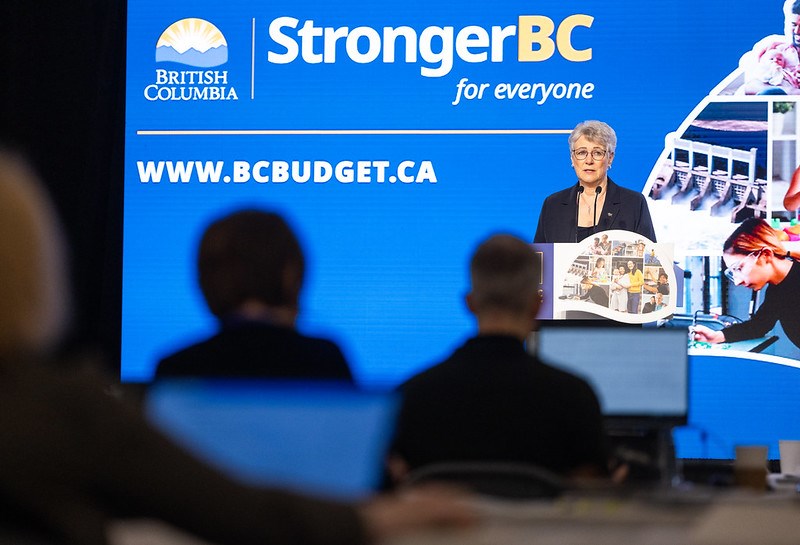Either the BC NDP thinks it's already won the election, or it’s planning one humdinger of a platform this fall, but it’s hard to imagine the governing party taking Thursday’s tepid-yet-expensive provincial budget on the campaign trail to entice swing voters.
For starters, there’s not a lot of actual financial relief for the cash-strapped British Columbians that Premier David Eby has been saying for months now he would give a helping hand.
The stretched middle class? At best, some families might get a $400 addition to their BC Family Benefit and a $100 Hydro credit — but the amounts are so low, and spread out over 12 months, many people may not even notice them at all.
Housing affordability? An increase to the property transfer tax exemption rate comes up short of the rate rival BC United promised, and an anti-flipping tax won’t move the needle much, if at all, on housing and rent prices.
The tackling of “root causes” to help lower people’s “everyday costs” as the premier promised? Nowhere in sight.
A promise for the province to cover the cost of one cycle of in-vitro fertilization treatments was well-received, but the $34 million cost was barely a rounding error in the $89.4 billion spending plan, which makes you wonder why the NDP didn’t do it years earlier.
An olive branch to the business community to double the exemption threshold for the Employer Health Tax to payrolls of $1 million was also welcomed, but at the same time also basically the NDP admitting it miscalculated when it created this tax to replace MSP fees in 2019.
The new budget was, overall, a largely stand-pat affair. Which is stunning when you consider Finance Minister Katrine Conroy poured billions of dollars into health care and K-12 education, only to keep those services steady, fund pay hikes and accommodate population increases.
New Democrat strategists are clearly sitting on a much more ambitious series of expensive promises, policies and programs to present to voters this fall, in advance of the Oct. 19 election. It will be the hidden, real budget for the year.
Conroy all but admitted as much on stage when asked, saying she could not outline what shiny goodies the premier was saving for the campaign platform, joking “that might be a career-ending move.”
“There'd be a lot more in the budget if we were just focusing on the election,” she said. “And we’re not. We have to govern.”
The problem with the NDP’s true re-election spending platform is going to be the added cost.
This lukewarm budget is already drowning in red ink. It has not only the largest deficit in B.C. history, at $7.9 billion, but also the largest debt levels British Columbia has ever seen. The NDP is forecasting to drive taxpayer-supported debt to $126 billion by 2027, a tripling of what it inherited upon taking power in 2017.
“This is the worst example of reckless spending I have ever seen in a government budget, full stop,” said BC United Leader Kevin Falcon.
“The worst part is it’s not just reckless spending … it’s the fact that we’re getting the worst outcomes we've ever seen in health care, in public safety, in drug overdose death rates, in housing affordability, in every area that the provincial government’s responsible for.”
The NDP is calculating that most voters in the province are so busy struggling to get by day-to-day that they don’t care about whether the government is spending within its means.
Which may be true. But New Democrats still need a more coherent re-election platform than the overpriced timidity outlined in this budget.
Rob Shaw has spent more than 16 years covering B.C. politics, now reporting for CHEK News and writing for Glacier Media. He is the co-author of the national bestselling book A Matter of Confidence, host of the weekly podcast Political Capital, and a regular guest on CBC Radio.






